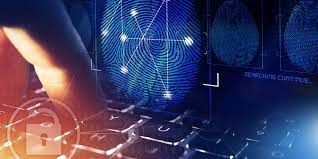What is the value of digital forensics in a criminal case?
Digital forensics can be extremely valuable in criminal cases, particularly those involving cybercrimes, fraud, and other types of digital evidence. Digital forensics refers to the process of collecting, analyzing, and presenting digital evidence in a way that is admissible in court.
The value of digital forensics in a criminal case lies in its ability to provide concrete evidence that can be used to prove or disprove the guilt of a suspect. For example, digital forensics can be used to recover deleted files, analyze network traffic, and examine mobile devices or computers for evidence of criminal activity.
By providing tangible evidence, digital forensics can help to remove any doubt or uncertainty about what happened in a particular case. This can be particularly important in cases where there is little or no physical evidence, or where witnesses have conflicting accounts of events.
Moreover, digital forensics experts can also provide testimony in court, explaining their findings and how they arrived at their conclusions. This can help to educate judges and juries about the technical aspects of a case and help them to make more informed decisions.
Overall, digital forensics can be an invaluable tool in criminal investigations and prosecutions, helping to ensure that justice is served and that the guilty are held accountable for their actions.
Why would a defense attorney seek the expert opinion of a forensics expert?
A defense attorney may seek the expert opinion of a forensics expert for a number of reasons, including:
To challenge the prosecution’s evidence: Forensics experts can analyze the prosecution’s evidence and identify any weaknesses or inconsistencies that can be used to challenge the validity of the evidence.
To present an alternative theory of the crime: Forensics experts can analyze the evidence and provide an alternative theory of the crime that may exonerate the defendant or cast doubt on the prosecution’s case.
To present mitigating evidence: Forensics experts can provide evidence that mitigates the defendant’s culpability, such as evidence of mental illness, drug addiction, or other factors that may have contributed to the crime.
To ensure a fair trial: Forensics experts can help ensure that the defendant receives a fair trial by identifying any errors or biases in the prosecution’s evidence and providing a counterbalance to the prosecution’s forensic experts.
Overall, a defense attorney may seek the expert opinion of a forensics expert to help build a stronger defense case and ensure that the defendant receives a fair trial.
Why would a prosecutor seek the opinion of a forensics expert?
Prosecutors may seek the opinion of a forensics expert for several reasons:
To strengthen their case: Forensics experts can provide technical expertise and evidence that can strengthen the prosecution’s case. Forensic evidence such as DNA analysis, fingerprint analysis, and ballistics analysis can be particularly powerful in convincing a jury of a defendant’s guilt.
To identify new leads: Forensics experts can analyze evidence from a crime scene and identify new leads or suspects that may have been overlooked.
To rebut defense arguments: Forensics experts can provide evidence that can rebut defense arguments and theories. For example, if the defense argues that a particular piece of evidence was tampered with, a forensics expert can provide evidence that shows that the evidence is legitimate.
To ensure a fair trial: Prosecutors have a duty to ensure that the defendant receives a fair trial. Forensics experts can help prosecutors identify any errors or biases in their evidence and ensure that they present a balanced and accurate case to the jury.
Overall, prosecutors may seek the opinion of a forensics expert to help build a stronger case and ensure that the defendant is held accountable for their actions.
How would an attorney go about hiring an expert witness in digital forensics?
If an attorney wants to hire an expert witness in digital forensics, they can follow these steps:
Determine the expertise needed: Digital forensics is a broad field, and an attorney needs to identify the specific areas of expertise that will be required for their case. For example, if the case involves computer hacking, the attorney should seek an expert who specializes in network forensics.
Search for potential experts: There are various resources that attorneys can use to search for potential experts in digital forensics. They can search online directories or ask colleagues for recommendations.
Evaluate the potential experts: Once potential experts have been identified, the attorney should evaluate their credentials, experience, and expertise. They should review the expert’s CV or resume, consider their professional affiliations, and assess their experience in testifying as an expert witness.
Interview potential experts: The attorney should conduct interviews with the potential experts to assess their communication skills, knowledge of the subject matter, and ability to testify effectively. They should also ensure that the expert is willing and available to take on the case.
Agree on terms and fees: Once an expert has been selected, the attorney and the expert should agree on the terms of engagement and the fees. This may include the scope of work, the timeline for completion, and the hourly or flat rate fee.
Retain the expert: Once the terms have been agreed upon, the attorney can formally retain the expert by signing a retainer agreement and providing a deposit for their services.
Overall, hiring an expert witness in digital forensics requires careful consideration and evaluation of the expert’s qualifications and experience to ensure they can provide valuable insights and testimony for the case.




